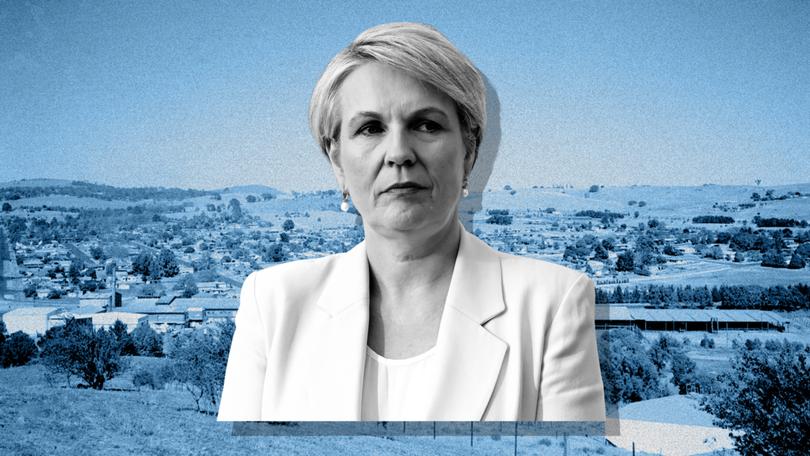Tanya Plibersek to tout Labor’s ‘good progress’ on nature positive, while broader agenda is in doubt
Environment Minister Tanya Plibersek will use this week’s global green summit to tout the Government’s ‘really good progress’ in turning Australia nature positive, as Labor’s green agenda remains in doubt.

Despite Labor’s environmental agenda teetering on the brink, Environment Minister Tanya Plibersek will use this week’s global green summit to tout the Government’s “really good progress” in turning Australia nature positive.
At the Global Nature Positive Summit in Sydney on Tuesday, Ms Plibersek will laud the Federal Government’s green credentials and announce Australia now protects more ocean than any other country on earth, surpassing the 30 per cent United Nations target Labor signed up to in 2022.
But the Federal Opposition says it is “embarrassing” Ms Plibersek is fronting up to the summit without any policy reforms to show for it, given her controversial laws to create a new Environmental Protection Agency remain stuck in the Senate.
Sign up to The Nightly's newsletters.
Get the first look at the digital newspaper, curated daily stories and breaking headlines delivered to your inbox.
By continuing you agree to our Terms and Privacy Policy.Appearing in front of about 1000 delegates, Ms Plibersek will tout the Government’s 310,000 sq km expansion of the sub-Antarctic Heard and McDonald Island Marine Park — a quadrupling of the existing marine park — as a major win for the world, and for the Government’s environmental protection agenda.
“The Australian Government is doing more than ever to make our economy nature positive,” she said ahead of the summit.
But while she does that in Sydney, her signature Nature Positive Plan remains stalled in Canberra.
Labor has rejected the Greens’ demand for a “climate trigger” and its offer to gut the proposed EPA has failed to sway the Coalition, leaving the Government without a path to get its laws through Parliament.
But with the laws listed for debate again on Thursday, Ms Plibersek said the Government remained committed to delivering its election promise to create a new nature cop.
“We’re fixing our environmental laws, so they do what they’re meant to do,” she said.
“The Global Nature Positive Summit helps Australia set the global agenda for a nature positive future.
“The Australian Government is committed to better protection for our environment and supporting businesses to consider their dependence and impact on nature.
“It’s this collective action that will help us achieve a nature positive future.”
The summit comes as new polling from YouGov shows 70 per cent of voters want the Federal Government to do more to protect and restore nature, and 86 per cent signalled their support for stronger nature laws.
Australian Conservation Foundation chief executive Kelly O’Shanassy said the Government should use the summit as an opportunity to make good on its promise to overhaul the country’s “ineffective nature laws” by working with the Senate crossbench.
“All eyes are on Prime Minister Anthony Albanese to do the right thing for nature and not cave to a fossil fuel driven campaign to derail nature law reform,” she said.
“The Albanese government can choose triumph over humiliation at this week’s Global Nature Positive summit.”
Opposition environment spokesman Jonno Duniam said the summit would be an embarrassment for the Federal Government.
“It is a talkfest about everything the Albanese Government are not delivering on,” he said.
He said the summit itself, which cost more than $5m shared with the NSW Government, was not a good use of taxpayer funds.
The summit, billed as an opportunity to bring together delegates from around the world including ministers, environment groups, business leaders and scientists, has failed to attract many foreign dignitaries.
The only ministers listed to speak at the event are from the Pacific nations of Nuie and Fiji.
Meanwhile, hundreds of government officials are expected to attend a United Nations biodiversity conference in Colombia later this month.
“At least $5 million of taxpayers’ money has been spent on this conference with at least 24 bureaucrats working for over two years full-time on it,” Senator Duniam said.
“While the Coalition welcomes private sector involvement in this space, we have serious doubts that this conference will do anything to improve environmental outcomes in Australia or elsewhere.”
